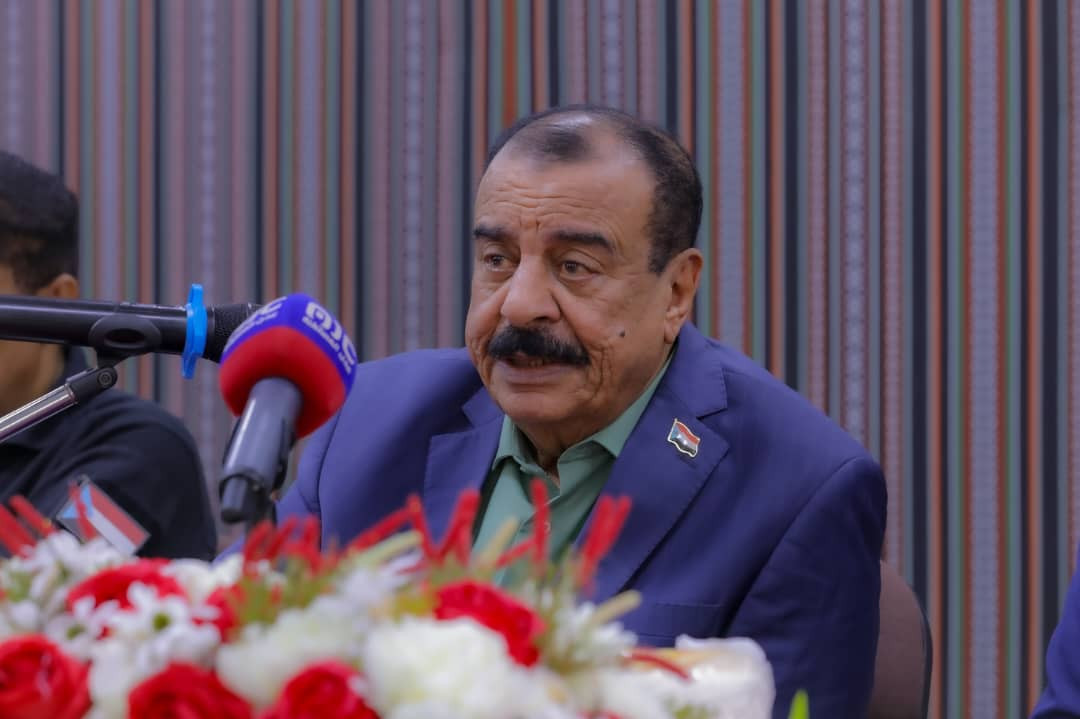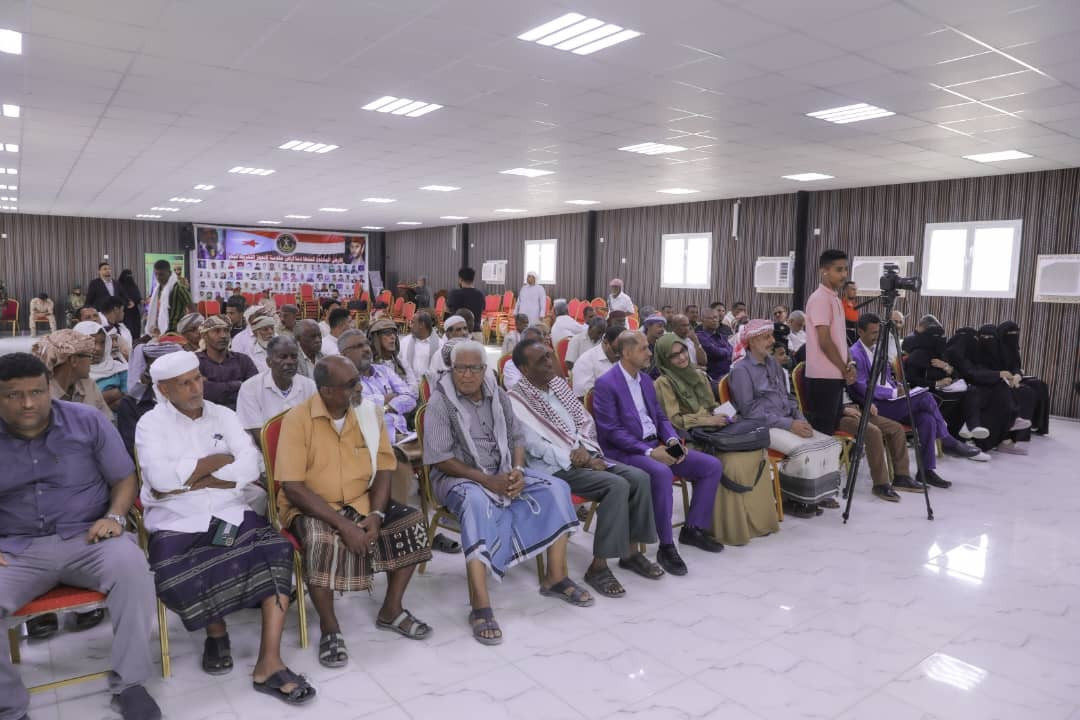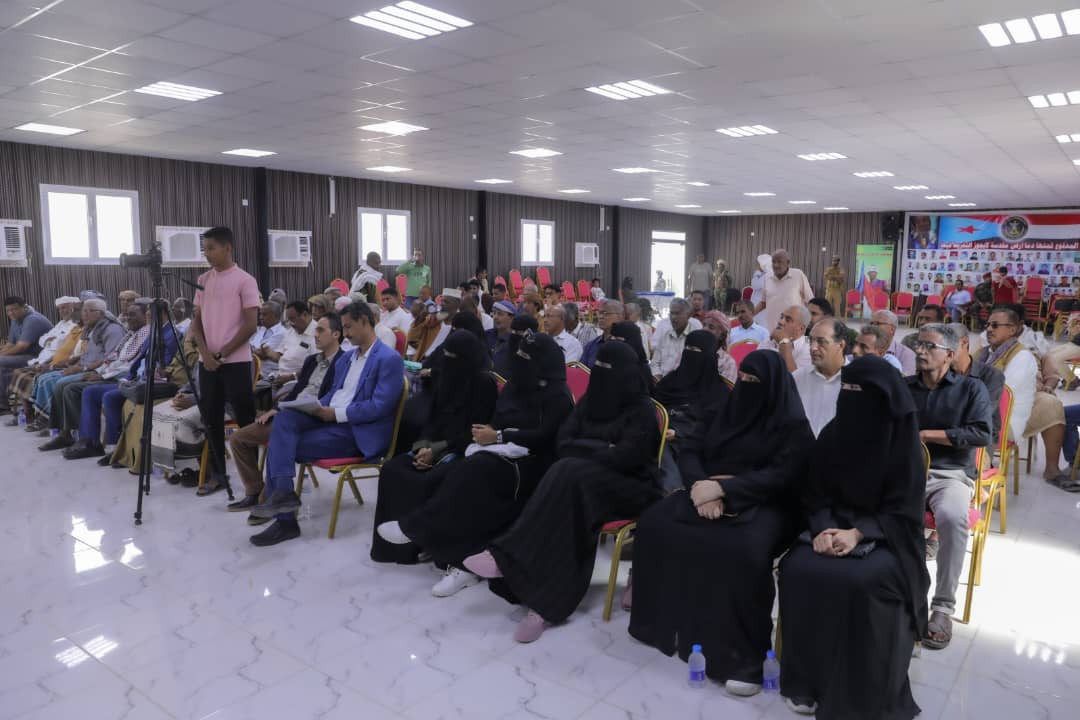Al-Muharrami Stresses Key Role of Private Sector in Stabilizing Currency and Growing Economy
Mr. Abdulrahman Al-Muharrami, Deputy President of the Southern Transitional Council (STC) and member...
Major General Ahmed Saeed bin Barik, Vice President of the Southern Transitional Council (STC), and the team accompanying him, represented by Mr. Fadi Baoum, member of the STC's Presidium, and Mr. Abdulsalam Musa'ed, head of the Southern National Dialogue Team (SNDT), and members of the SNDT, met today, Monday, with representatives of trade unions, federations, and civil society organizations in Hadramaut Governorate.
In the beginning of the meeting, which comes within the program of the Vice President of the STC and the team accompanying him to Hadramaut and was attended by Brigadier Saeed Ahmed Al-Mohammadi, head of the local leadership executive body (LLEB) of the STC, Major General Bin Brik explained that the South lies on the most important World Trade passage in the Arab and Red Seas, which poses great pressure on the South in light of the international conflict over maritime navigation, which prompts us to unite ranks to get out of the artificial impasses created by the forces opposed to the aspirations of the people.
Major General Bin Brik stressed the importance of strengthening the southern national alignment and exerting collective and concerted efforts by all the people of the South towards restoring rights and achieving goals. Moreover, he touched on the role of civil society organizations in strengthening Hadrami community cohesiveness on the path to unity of the southern ranks, through the active role of professional employees, and coordination between local authorities and segments of society, affirming not to neglect the achievements fulfilled in Hadhramaut after the year 2015, particularly the formation of the Hadrami Elite Forces (HEF).
Furthermore, Mr. Baoum stressed the importance of listening to all segments, centers, and institutions of society, including civil society organizations, unions, and federations, about their role in actively participating in monitoring and coordinating with the local authority, and enhancing cooperation and joint work with them.
Additionally, Mr. Musa'ed, head of the SNDT, pointed out that these meetings are the beginning of a series of engagements with civil society organizations that have become real power and must elevate their work to a level that corresponds to their significant role.
During the meeting, a range of issues and topics related to society and the work of organizations, unions, and federations were discussed, as well as the challenges they face and the dire conditions affecting citizens in society.


